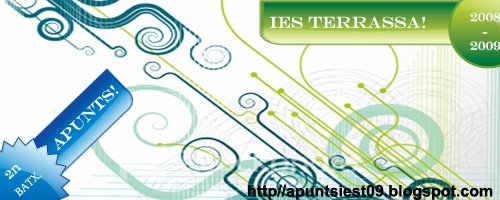SIMPLE PAST
infinitive + -ed (except for irregular verbs)
uses:
- To describe a past habit, or repeated actions in the past. I played the guitar every day.
- To relate a completed past event, with or without mention of time. Last July I went to Rome.
- To tell a story. When I was seventeen the most amazing thing happened to me.
PAST PROGRESSIVE
was/were + -ing
uses:
- To suggest that one action in the past started before another action in the past, and probably continued after it. He was working in a shop when he met her.
- To describe temporary actions or situations in the past. It happened while I was living.
- To give background information in stories. The sun was shining and the birds were singin in the trees.
USED TO
positive: usted to + infinitive
negative: didn't use to + infinitive
interrogative: did you use to + infinitive
uses:
- To express a habit that no longer continues often in contrast with the present. I used to play basketball; now I just watch.
- To talk about things that happened regularly in the past. He used to go to work by car.
- To express states in the past. I used to live in France.
PAST PERFECT
had + past participle. Short forms: 'd (=had) hadn't (=had not)
uses:
- To refer back to an earlier past action or event when we are already talking about the past. Often we use links like when, after, as soon as... Alan lived in London when I first met him. His family had moved there two years before. We went to bed as soon as our visitors had left.
- The past perfect is the past equivalent of the present perfect. (Present) Joan is worried because she has never taken an oral exam before. (Past) Joan was worried because she had never taken an oral exam before.
PAST PERFECT PROGRESSIVE
had been + -ing
note: the past perfect progressive is the past form of the present perfect progressive.
uses:
- To talk about something that was in progress up to the past time we are thinking about. She was very tired. She had been practising karate all day.
- To show that an action was frequently repeated, before a past time we are thinking about. He had been annoying her for months.
PRESENT SIMPLE
positive: infinitive (+ -s for he/she/it)
negative: do not/ does not + infinitive
interrogative: do/does + infinitive
uses:
- To express a present state. It may be used to express general truths. I'm thirsty. Do you like oranges? The sun sets in the west.
- To talk about habits, or regularly occurring events. He works in New York (every day). I often play basketball.
- To describe present events. This is a special use for commentaries. "Ronaldo shoots and it's a goal" We mix the sauce and "pour it into the tin...".
PRESENT PERFECT
has/have + past participle
note: the present perfect link the past and the present.
uses:
- Often used with just to describe an action in the recent past. He has just come in. (= he came in a few minutes ago).
- For recent actions in the past with a present result. The evidence is in the present. Graffiti has appeared on our walls.
- For actions which began in the past and still take place or are happening now. He has lived here all his life.
- For recent actions when the time is indefinite. Negatives and questions may use yet. Have you seen the film? No, I haven't seen it yet.
- To relate experience (from the past up until now). It is often used with ever or never. Have you ever seen a whale? No, I've never seen one.
FUTURE WITH WILL
will + infinitive.
uses:
- To predict future events. I think Brazil will win the next World Cup. Women will become more equal.
- After verbs and expressions like be afraid, be/feel sure, believe, doubt, expect, hope and think, to talk about our hopes and expectations about the future. I hope I'll get the job. I'm sure she'll pass.
FUTURE WITH GOING TO
present progressive of go + to + infinitive
uses:
- To express the spekaer's intention to do something. I'm going to meet Tom. What are you going to do when you grow up?
- To make future predictions where the speaker has evidence that something will happen. It can be used without time expressions but the use of going to suggests the actions is expected to happen in the near future. Look at those black clouds. It's going to rain.
Está incompleto, ya iré subiendo más tiempos.
Suscribirse a:
Enviar comentarios (Atom)

1 comentario:
After getting more than 10000 visitors/day to my website I thought your apunts2nbatx08-09.blogspot.com website also need unstoppable flow of traffic...
Use this BRAND NEW software and get all the traffic for your website you will ever need ...
= = > > http://get-massive-autopilot-traffic.com
In testing phase it generated 867,981 visitors and $540,340.
Then another $86,299.13 in 90 days to be exact. That's $958.88 a
day!!
And all it took was 10 minutes to set up and run.
But how does it work??
You just configure the system, click the mouse button a few
times, activate the software, copy and paste a few links and
you're done!!
Click the link BELOW as you're about to witness a software that
could be a MAJOR turning point to your success.
= = > > http://get-massive-autopilot-traffic.com
Publicar un comentario